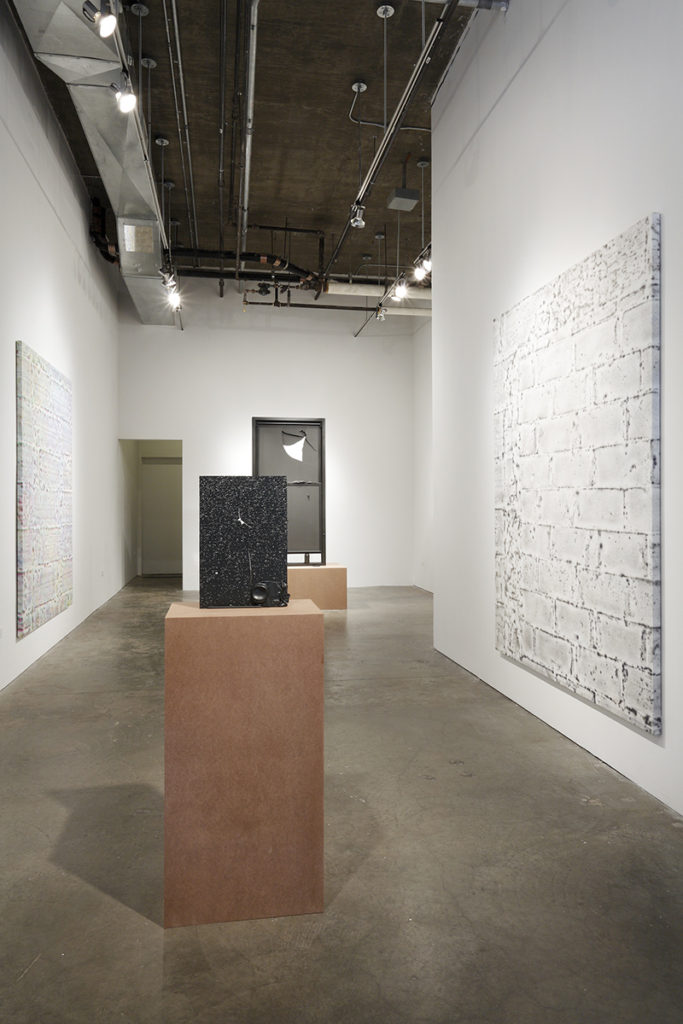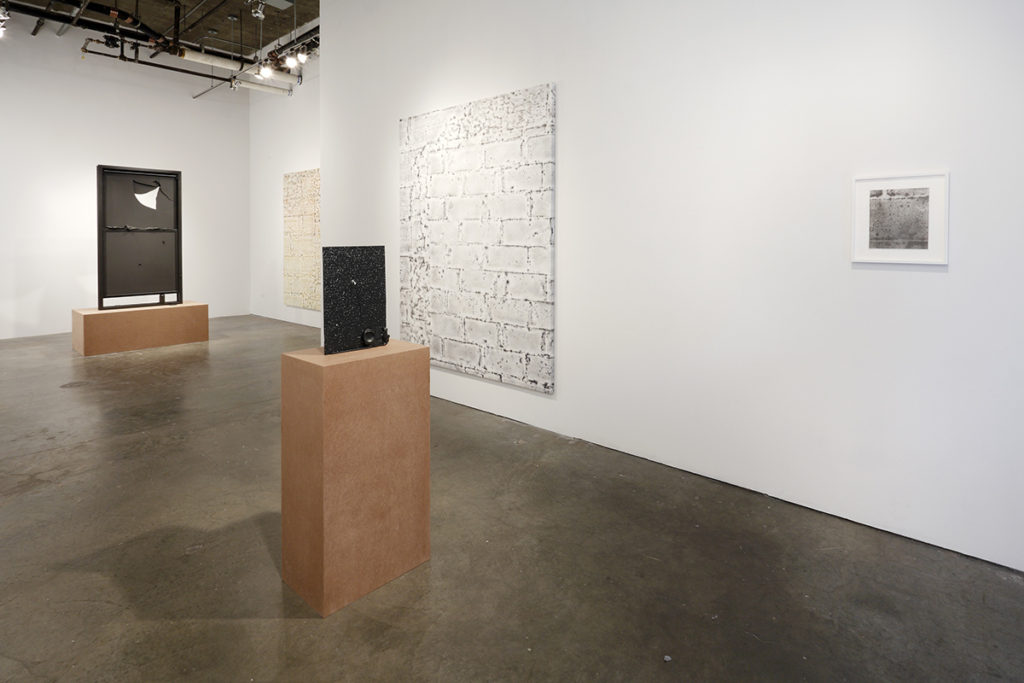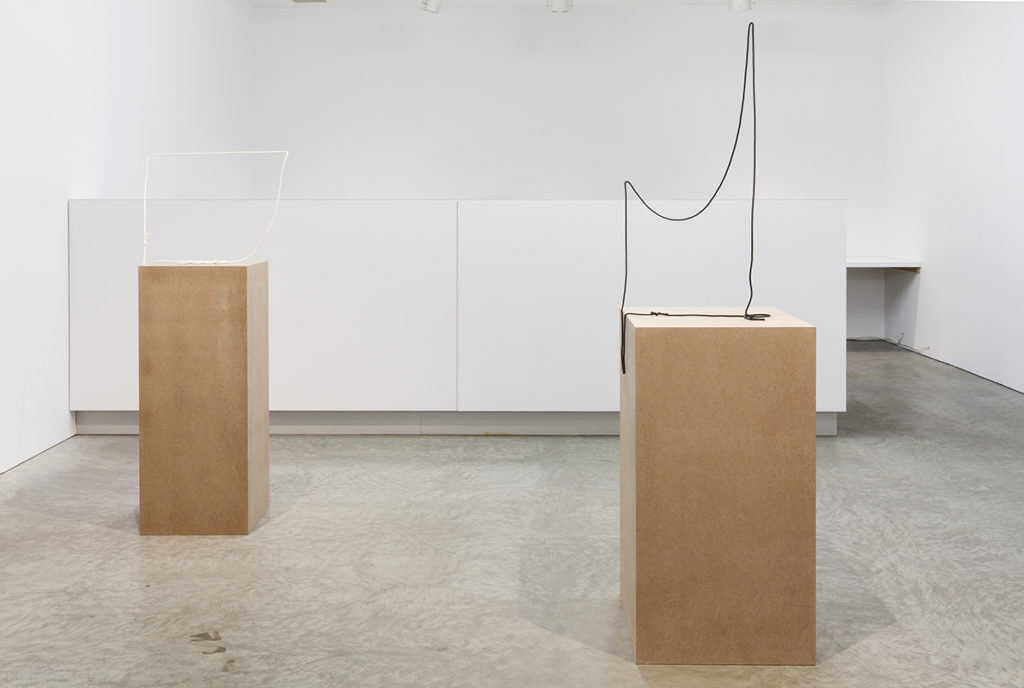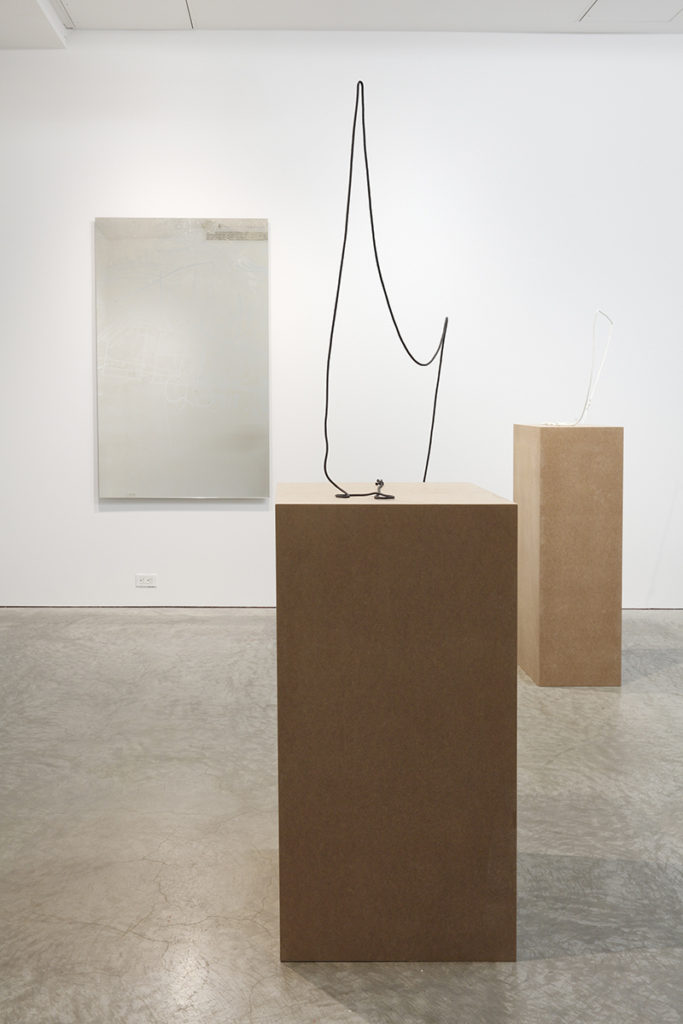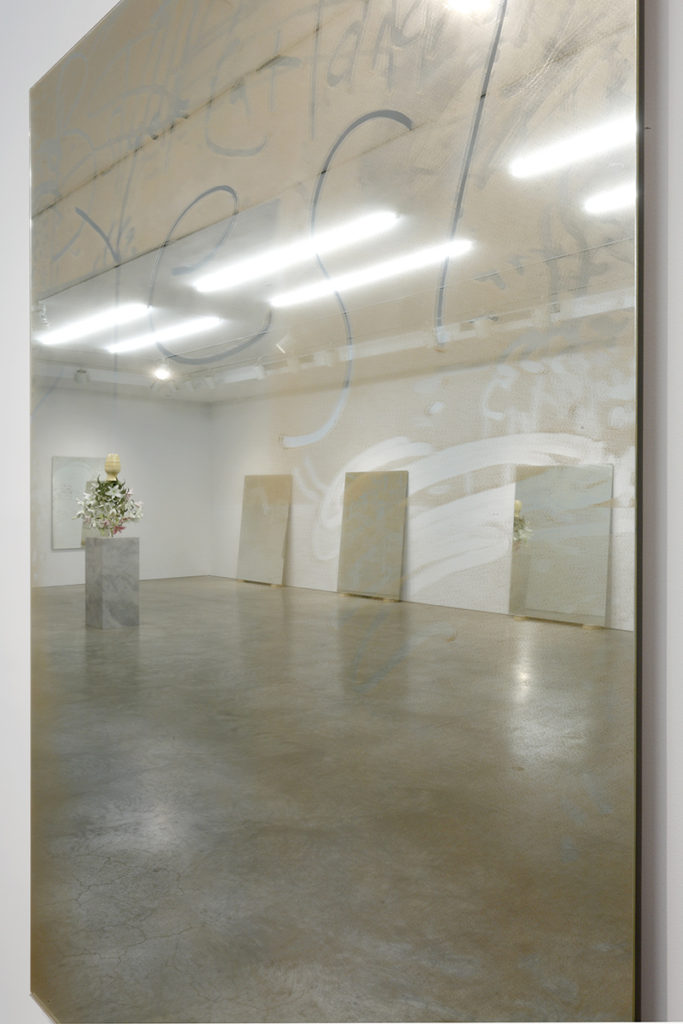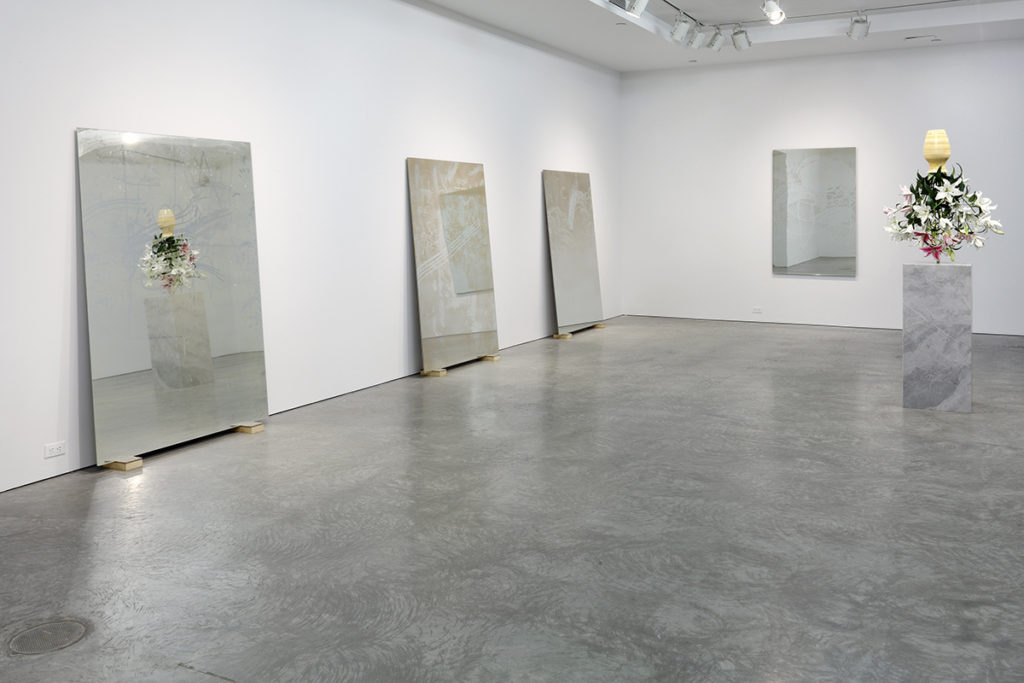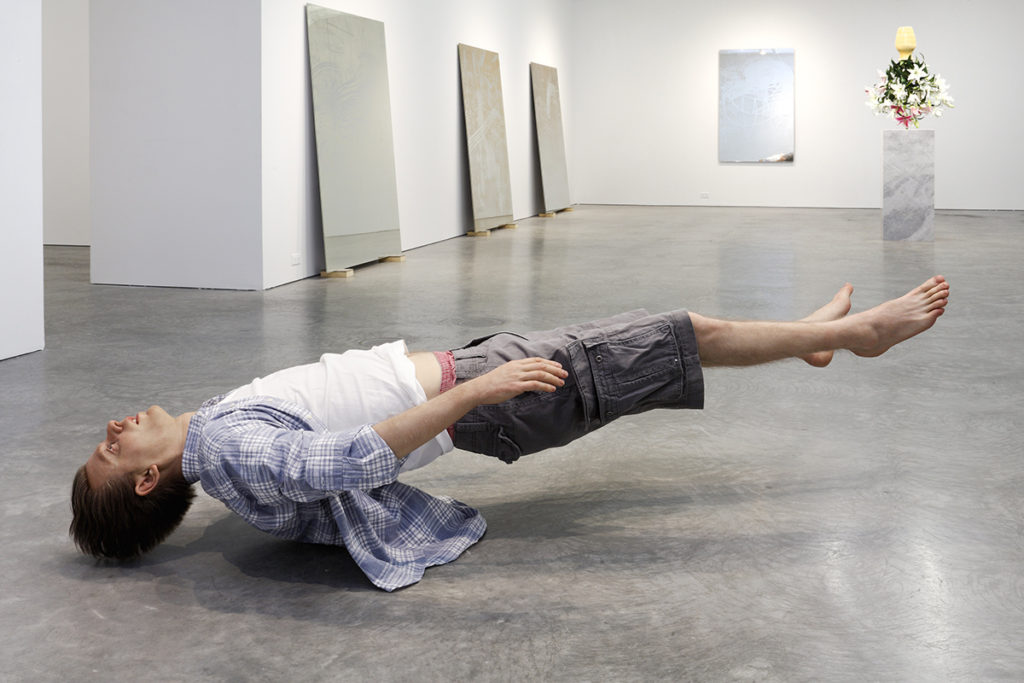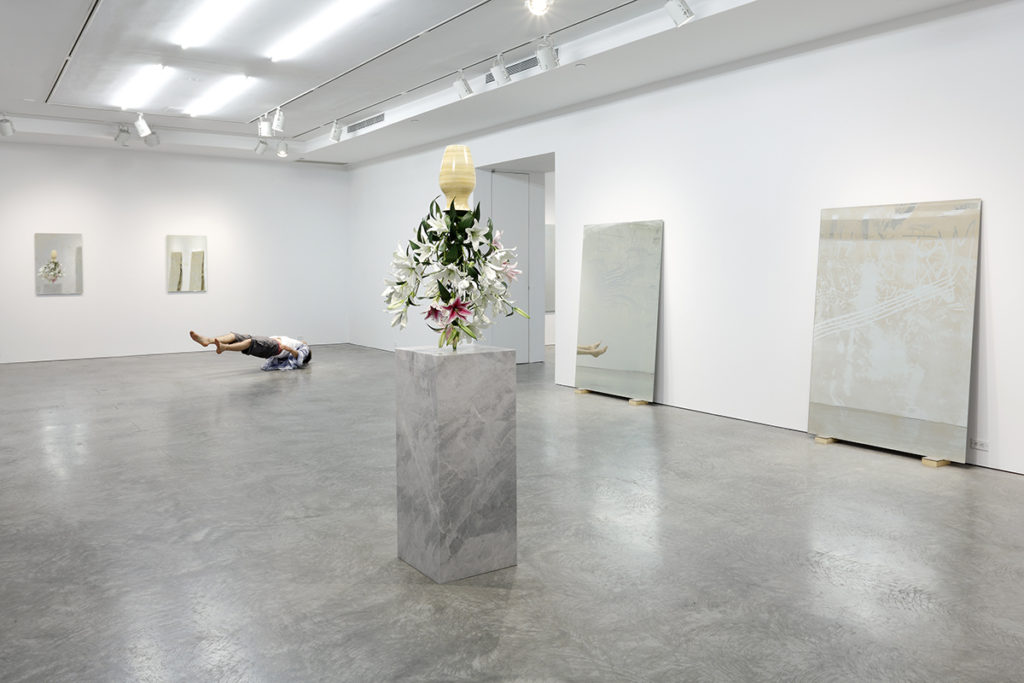Press Release
Leo Koenig Inc. is pleased to announce Tony Matelli’s fourth exhibition of new work, the artist’s first solo presentation in New York since 2008.
Entitled Windows, Walls and Mirrors, and spanning both galleries at 541 and 545 West 23rd Street, Matelli focuses on themes of clarity and opacity, presence and absence. In his hyper-precise renderings of object and human forms, Matelli sets forth a platform of ambivalence. Inverting the implications of traditional sculptural materials, his work upends ideas of monumentality and places his subjects somewhere between immovable and weightless, the force of life and the downward pull of death.
Encountering Arrangement, for example, the viewer is struck by a beautifully composed bouquet of white and pink lilies, flipped upside down. The lilies, created from hundreds of cast bronze elements and delicately hand painted, balance precariously on the pedestal below its mass of blossoming flowers. While the downward pull of gravity is miraculously absent, the inversion of this common yet majestic flower complicates an otherwise straightforward symbolic gesture through its own structural implausibility. In Josh, the artist has created a sensitive portrait of a man levitating just inches off the floor, eyes wide open. The floating body conveys the impression of untethered neutrality, a corporeal manifestation of a spiritual and existential limbo.
Recent Mirror Paintings and a new series of works entitled Window Sculptures evidence Matelli’s continued interest in obfuscation. The Mirror Paintings appear as if frustrated graffiti has been wiped on dusty surfaces by an impulsive hand. However, the appearance of seemingly random marks on surfaces of grime and neglect belie the artist’s meticulous process of layering of urethane and acid on a mirrored ground. Reflection here is a meditation on the changing nature of ones own image as seen through the obfuscating passage of time. Alternatively, Window is a copy of a cheap, mass-produced window fabricated in laser-cut steel and cast bronze, its glass swapped out for opaque metal. An artifact of generic domesticity, the artist has rendered the contemporary picture window void of the viewing portal that has served as an artistic and literary trope for centuries. Window is not a portal to a vista but rather a barrier to a view.
In 541, Matelli has installed a series of paintings that record the confines of his Brooklyn studio. Employing a technique known as frottage, Matelli uses a foam block to rub paint onto a canvas stretched across a particular wall, thereby mapping both the physical and psychic space of the artist studio. Although popularized by Max Ernst in the twentieth-century, Matelli’s use of this method is more closely linked to early recordings of Egyptian hieroglyphs, or the contemporary practice of grave rubbings, in that the record keeping is an exact transfer of time and place. Manual and tactile, this approach is the antithesis of digital printing or industrial processes, having more in common with printmaking, as the wall becomes the litho stone or plate and the foam black, the brayer. With this series, Matelli returns to another trope that has long been integral to his body of work — the nuanced self- portrait that is synonymous with the intrepid and relentless examination of the self in all its manifestations.
Tony Matelli was born in Chicago, Illinois in 1971. His work is included in numerous public collections including the Cranbrook Art Museum, Cranbrook, MI; FLAG Art Foundation, New York, NY; Williams College Museum of Art, Williamstown, MA; ARoS Aarhus Kunstmuseum, Copenhagen; National Centre of Contemporary Art, Moscow; Fundacion La Caixa Madrid, Spain; Museum Ludwig, Cologne, and the Uppsala Museum, Uppsala, Sweden. Recent solo exhibitions have been presented at the Künstlerhaus Bethanien, Berlin; the Palais de Tokyo, Paris; Uppsala Konstmuseum, Uppsala, Sweden, and forthcoming projects include a mid-career survey at the ARoS Aarhus Kunstmuseum, Denmark in 2012. The artist lives and works in Brooklyn, New York.
